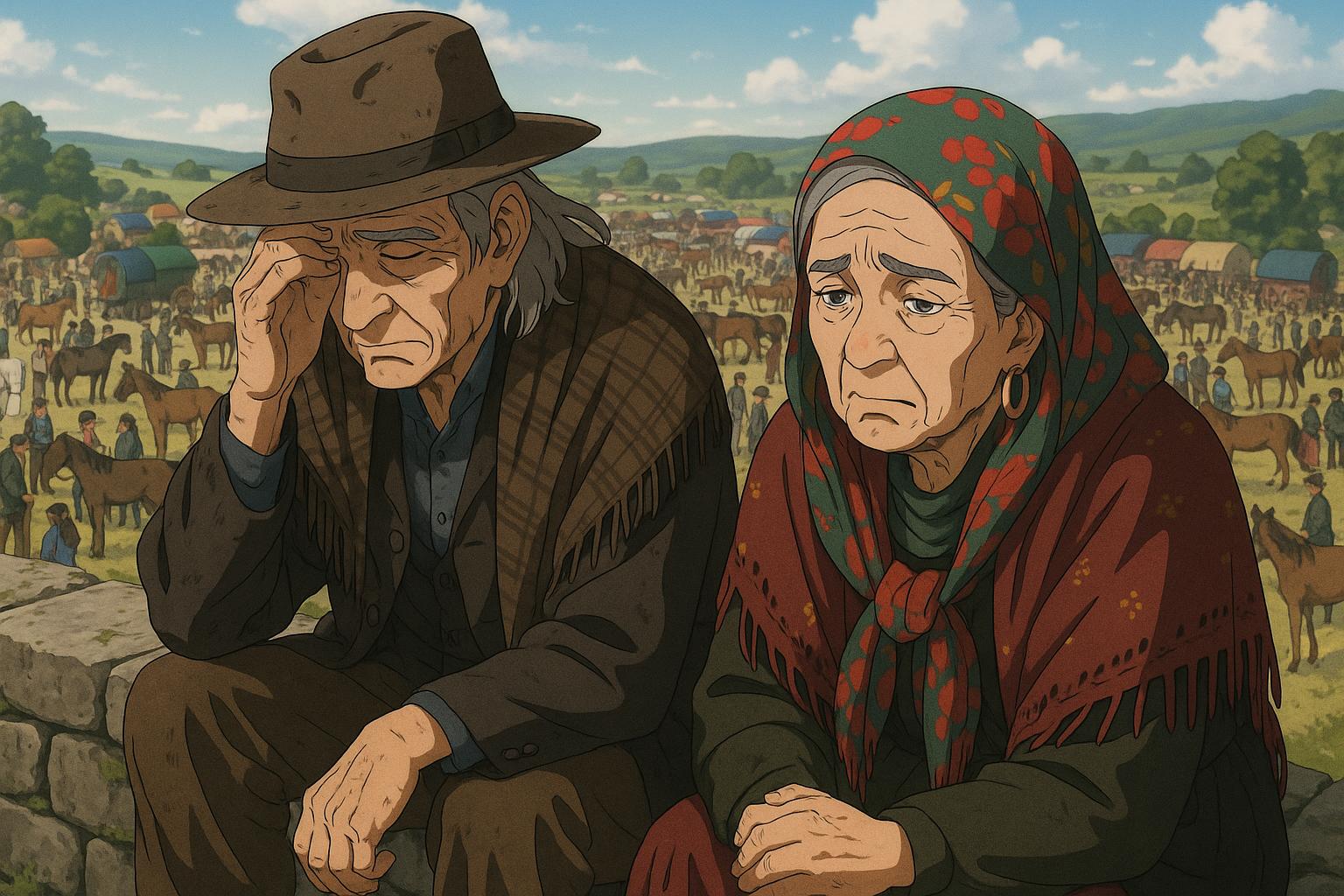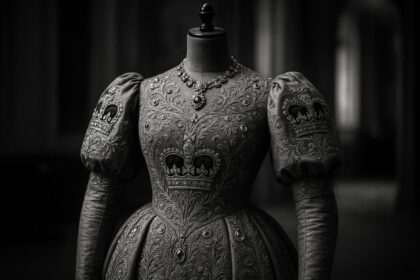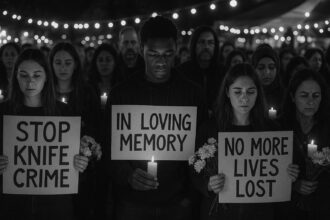At the historic Wickham Horse Fair, which has run since 1269, Romany gypsy elders express deep concern that the event’s cultural authenticity is being undermined by an increasing number of non-travellers and commercialization, threatening centuries of tradition and community identity.
Nelson Scott and Dinky Sherwood, two Romany gypsy cousins, gathered on a wall overlooking the throngs at the Wickham Horse Fair, where the air thrummed with excitement. Held annually since 1269, this historic event near Winchester is a crucial cultural fixture for the Gypsy, Roma, and Traveller communities. Yet both men expressed profound disappointment, believing that the essence of the fair is being eroded by an influx of non-travellers, whom they refer to dismissively as “gorja wannabes.”
Scott, 78, lamented the dilution of their tradition, suggesting that genuine Romany representation is now alarmingly sparse. “There’s only about 10 years left before it will stop completely. It will be a shame because we won’t be able to meet up like we do,” he said. His cousin echoed these sentiments, stating, “The fair’s dying out because there are too many wannabes. They look at you like you’re a bit of s*** on their shoe.” The pair’s fears reflect a broader anxiety within the community about the sustaining of their cultural heritage amid changing demographics and societal norms.
The worrying trend of cultural appropriation extends beyond the fair itself. Scott and Sherwood contend that the new generation of travellers is increasingly distancing itself from traditional lifestyles, citing mixed marriages as a significant factor. Historically, strict cultural boundaries maintained the integrity of their way of life, but Scott observed that many younger individuals now form relationships with non-travellers. This integration is seen by some as a direct threat to their cultural identity, with Scott noting, “We are a dying race. There’s too much mixing.”
Jessy Goddard, a respected horse trader, provided an additional perspective, suggesting that the rise of “wannabes” is tied to money laundering schemes where individuals lacking genuine ties to the horse-trading tradition exploit the fair for profit. “Half of the people here, mostly gorjas with horses, were never brought up with horses,” he claimed. This commodification undermines the historical significance of the event, shifting it from a community gathering to a commercial opportunity for outsiders.
Despite the challenges, the fair continues to draw thousands. Over 2,000 attendees from across the UK gathered this year, and there were no reported incidents of anti-social behaviour, dispelling some of the negative stereotypes associated with the event. Community sentiment has been robust, asserting a long-held right to conduct the fair under a Royal Charter, a privilege established over 800 years ago.
The Wickham Horse Fair is not merely a gathering for horse trading; it encapsulates a way of life steeped in tradition. The traditions of the Romany gypsies, including their culinary practices and communal gatherings, are slowly fading. Dinky reminisced about the simpler, more rustic lifestyle of their past, where they hunted and cooked over open fires rather than opting for fast food that has proliferated in contemporary society. “We like our good old-fashioned food,” he declared, suggesting that the growing influence of modern conveniences is diluting their cultural uniqueness.
Complicating matters, local businesses often succumb to pressure from authorities to shut down during the fair, claiming that such actions harm their economic interests. The implications are severe: with businesses shuttered, travellers are deprived of local services, reinforcing a cycle of alienation. Goddard lamented the missed opportunities for local commerce, arguing that if businesses remained open, they could benefit substantially from the fair’s influx of visitors.
The narrative surrounding travellers often adheres to stereotypes that cast them as criminals, a gross simplification that Scott vehemently refutes. “Let me ask you, how many Romany travellers do you see getting done for rape, murder or killing babies on TV? You don’t,” he asserted, questioning why the broader public tends to assign blame to the Romany community rather than addressing the issues stemming from a key segment of the population.
As Wickham Horse Fair faces the future, the sentiments expressed by Scott, Sherwood, and Goddard highlight a cultural crossroads. The challenge lies not only in preserving their remarkable traditions but also in fostering understanding among communities that have often viewed the Romany lifestyle through a distorted lens. As Scott concluded, “We will never change,” reaffirming a commitment to their identity even as the world around them evolves.
Reference Map:
- Paragraph 1 – [1], [2]
- Paragraph 2 – [1], [4]
- Paragraph 3 – [1], [2], [6]
- Paragraph 4 – [1], [3]
- Paragraph 5 – [1], [5]
- Paragraph 6 – [1], [3]
- Paragraph 7 – [1], [2]
- Paragraph 8 – [1], [2]
- Paragraph 9 – [1], [2]
- Paragraph 10 – [1], [2]
Source: Noah Wire Services
- https://www.dailymail.co.uk/news/article-14736079/Romany-gypsy-non-traveller-wannabees-mixing-killing-race.html?ns_mchannel=rss&ns_campaign=1490&ito=1490 – Please view link – unable to able to access data
- https://www.hampshirechronicle.co.uk/news/23537282.wickham-horse-fair-23-police-say-no-arrests-anti-social-behaviour/ – The Wickham Horse Fair, a historic event in Hampshire, took place on May 20, 2023, attracting over 2,000 attendees from the Gypsy, Roma, and Traveller communities. Police reported no arrests or anti-social behaviour during the event, highlighting its peaceful nature despite its longstanding tradition. The fair, which has been held annually since 1269, operates under a Royal Charter and is a significant cultural gathering for the community.
- https://www.bbc.co.uk/news/uk-england-hampshire-57193732 – Despite being officially cancelled due to COVID-19 restrictions, the Wickham Horse Fair saw about 250 attendees in May 2021. The event, which traces its origins back to 1269, is a traditional gathering for the Gypsy, Roma, and Traveller communities. Police deployed a large number of officers to ensure public safety, and no criminal offences were reported during the gathering.
- https://www.portsmouth.co.uk/news/people/cancelled-wickham-horse-fair-attracts-large-crowd-and-police-presence-with-concerns-over-harassment-3244734 – In May 2021, the Wickham Horse Fair, despite being declared cancelled due to COVID-19, attracted a large crowd intent on preserving the tradition. The gathering led to a significant police presence, with concerns raised about potential harassment of attendees. The event, which has been held for over 800 years, is a significant cultural occasion for the Gypsy, Roma, and Traveller communities.
- https://www.bbc.com/news/articles/cll172jn724o – The Wickham Horse Fair, a traditional event tracing back over 750 years, is held annually on 20 or 21 May. The fair attracts thousands of people, primarily from the Gypsy, Roma, and Traveller communities. Police implement road closures and deploy extra officers to manage the event, ensuring safety and order during the gathering.
- https://www.hampshirechronicle.co.uk/news/24333541.wickham-horse-fair-2024-happened-pictures/ – The Wickham Horse Fair in 2024 saw hundreds of Gypsy, Roma, and Traveller people visiting the historic annual event. The fair featured horse and pony-drawn carriages, a market, and a funfair. Organizers noted a significant increase in market size and local participation, indicating a revitalization of the tradition and its appeal to both the traveller community and local residents.
- https://www.bbc.com/news/uk-england-coventry-warwickshire-45717280 – The Kenilworth Horse Fair, a long-standing event in Warwickshire, was discontinued after ‘many years of problems,’ including complaints and traffic disruptions. The decision was made by the council, police, and landowner, marking the end of a tradition that had been a part of the community for years. The move sparked concerns about the preservation of Gypsy and Traveller traditions.













